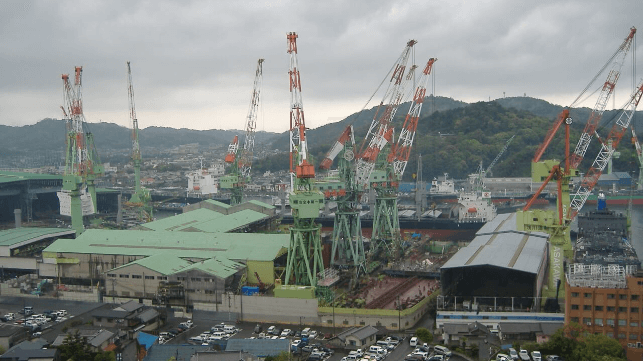Japan's Ruling Party Has a $7B Restructuring Plan for Shipbuilding

As the U.S. considers policy proposals to revitalize a lagging shipbuilding industry, it is looking to Japan and South Korea for ideas on how to keep this labor-intensive sector competitive in a high-GDP economy. But these once-dominant shipbuilding nations have issues of their own, particularly Japan, where construction volume has fallen by a third over five years. Japan's conservative Liberal Democratic Party has a new proposal to solve Japanese shipbuilding's woes, and it shows the serious scope of the policy interventions that might be required for an effective response.
The LDP's Special Committee on Shipping and Shipbuilding has delivered an "urgent proposal" for shipbuilding revitalization for Prime Minister Ishiba Shigeru, requesting immediate action. Japan's shipyards are winning fewer orders because of serious labor shortages and high steel prices, the committee warned. Smaller, older shipyard facilities are also a handicap when compared with mega-yards in China and Korea.
"If we continue to accept this situation without any measures, in the near future, Japan's shipbuilding industry, like Europe and the
United States, will be unable to maintain its domestic supply chain, will lose the autonomy and advantages that Japan has maintained, and will find it difficult to survive," the committee warned.
The proposal lays out a national vision of a healthy and prosperous industry, and recommends specific measures for government intervention:
- Promote shipyard capacity expansion, backed with a $7 billion shipyard fund and a "government-owned, contractor-operated" capital investment model
- Promote restructuring, vertical integration and shipyard-to-shipyard collaboration, and provide clear policy on how anti-monopoly laws apply to competing shipyards that decide to work together
- Make more automation and roboticization investments
- Target specialty products, like floating offshore wind structures and zero-emissions ships
- Expand activity into partner nations' shipbuilding sectors - not just the United States, but also locations in the Global South, where it is possible to make effective use of "foreign human resources trained in Japan."
Labor measures receive particular attention in the proposal, since Japan has an aging population and - like the United States - a limited industrial labor pool. In Japan and Korea, major shipyards address this issue in part by recruiting and flying in foreign immigrants.
"It is necessary to face head-on the fact that the population and productive age population will decline for the time being, and to accelerate efforts to secure and develop human resources in the shipbuilding industry as a whole," the LDP report acknowledges. "There is still a shortage of human resources even if Japanese personnel are secured and productivity is improved, so it is necessary to utilize excellent foreign human resources, such as foreign trainees and foreign nationals with specified skills."
The proposal calls for a more flexible and effective policy for accepting skilled foreign labor through immigration, and for developing skill-building programs "that promote human resource development exchanges with human resource sending countries."
The plan also calls for wider promotion of shipbuilding as a career for Japanese citizens, including for women in the workplace.
